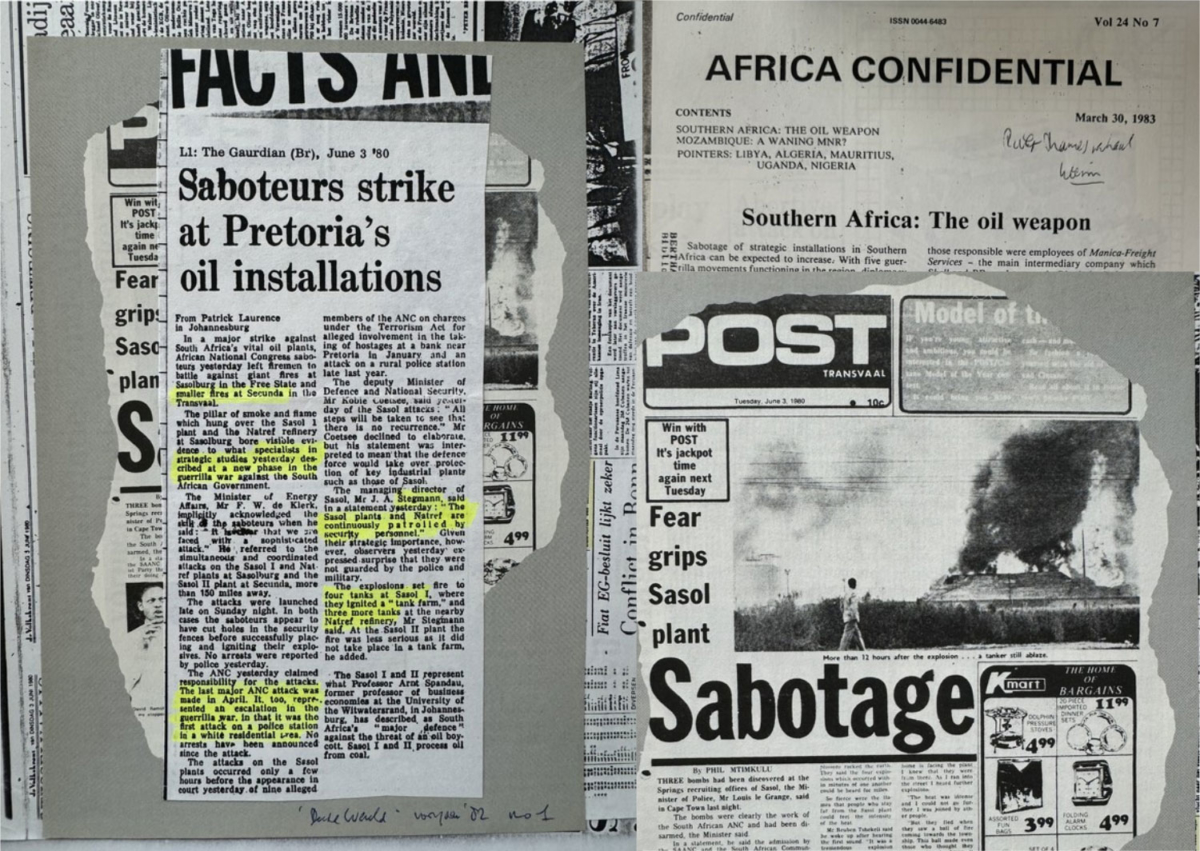The past walks beside us, whispering its unfinished tales

Our discussion explores the social infrastructures that resist imperial forms of governance and institutional repression, mobilizing networks of solidarity and counter-surveillance. Together, Miriyam Aouragh, Omar Jabary Salamanca, Karl Moubarak, Sofia Boschat-Thorez developed “The past walks beside us, whispering its unfinished tales”, a postcard pack published by the Institute for Technology in the Public Interest (TITiPI). The postcards compile a year-long investigation into archival visuals of infrastructure and apartheid—from South Africa to Palestine—exploring the material and symbolic energies that sustain resistance. In conversation, Miriyam, Karl, Sofia and Femke (TITiPI) will reflect on these intersecting movements, situating contemporary struggles within longer histories of decolonial resistance, tracing how infrastructures of power are both dismantled and repurposed in the fight for justice.
Professor Miriyam Aouragh is a researcher at CAMRI and teacher in the Media and Communication school. Aouragh has a background in cultural anthropology and non-Western sociology (Vrije Universiteit Amsterdam). She has written about diverse topics in books Palestine Online (IB Tauris 2011), (with Hamza Hamouchene) The Arab Spring a decade on about Revolution, Counter-Revolution and the transformation of a region (TNI 2022), Mediating the Makhzan and the (r)evolutionary dynamics in Morocco (CUP 2025) and (with Paula Chakravartty) Infrastructures of Empire (Sage
2026), as well as in chapters and articles.
Karl Moubarak is a designer, researcher, and web developer whose practice is rooted in the digital sphere and focuses on the development of on- and offline sites for connectivity and exchange. He is a member of Amsterdam-based workshop cooperative Hackers & Designers (2019–ongoing), Eindhoven-based interstitial collective body Office of Queer Affairs (2017–ongoing), and Beirut-based historical oral archiving initiative OH4L (2020–ongoing). Karl works on projects that aim to make visible the processes, tools, and mechanisms that co-constitute them, and generates experimental methods of liveness and dissemination, as facilitated by the sensitivities of free, libre, and open-source software.
Omar Jabary Salamanca is a writer, teacher and organizer based in Brussels. His work is concerned with the contested governance of space, matter, bodies and environments in a range of historical and geographical contexts, particularly in the Middle East. He is also interested in anticolonial histories and circulations of visual and material culture. Combining theory with multi-sited ethnographic fieldwork and archival practice, his work and practice crosses the fields of critical geography, political ecology, science and technology studies and Middle East studies. Omar is a member of Learning Palestine and co-founder of United Screens for Palestine, the Kitchen and the Sabr collective. He is also a research fellow affiliated to the OMAM and REPI research groups at the Université libre de Bruxelles.
Sofia Boschat-Thorez is a researcher, artist and educator who studies the social, economical and political implications of knowledge organisation systems and digital infrastructures. She has a background in digital archiving and preservation, from which she developed her interest in knowledge production, transmission, variability and access. She is a member of Varia, a Rotterdam-based initiative which aims at developing critical understandings of the technologies that surround us. She teaches at the Willem de Kooning Academy and at the ESA Saint Luc in Brussels.